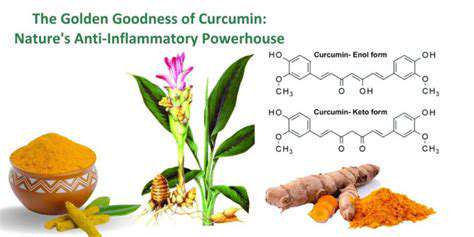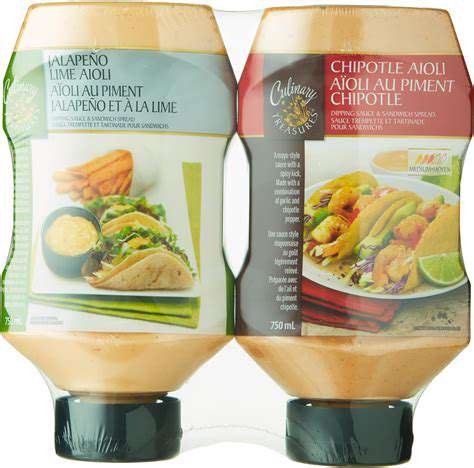Health Benefits of Turmeric and How to Use It

Turmeric's Anti-inflammatory Properties
Turmeric, a vibrant yellow spice derived from the turmeric plant, boasts a rich history of medicinal use, primarily for its potent anti-inflammatory effects. Its active compound, curcumin, is responsible for much of this power, exhibiting remarkable abilities to reduce inflammation throughout the body. This makes it a popular natural remedy for a variety of ailments.
Studies indicate that curcumin's anti-inflammatory action comes from blocking the creation of inflammatory molecules, which helps lessen the negative impacts of inflammation. This positions it as a useful option for handling different inflammatory issues.
The Science Behind Curcumin
Researchers have thoroughly examined curcumin's anti-inflammatory properties, uncovering substantial evidence that supports its efficacy. Multiple investigations have shown its capacity to lower inflammation in various tissues and organs, providing solid scientific validation for its use in diverse health contexts.
The ways curcumin delivers its anti-inflammatory effects are intricate and involve numerous pathways and bodily interactions. Ongoing research aims to decode these complex mechanisms, potentially leading to a fuller grasp of its therapeutic possibilities.
Potential Benefits for Joint Health
Persistent inflammation frequently plays a role in joint disorders such as osteoarthritis. Turmeric's anti-inflammatory qualities present a possible approach for easing the pain and discomfort linked to these conditions by reducing joint inflammation and supporting overall joint health.
Impact on Digestive Health
Turmeric's anti-inflammatory properties might also benefit the digestive system. It could help lessen gut inflammation, potentially easing symptoms of inflammatory bowel diseases like Crohn's disease and ulcerative colitis. This is an encouraging research area that deserves more exploration.
Supporting Cardiovascular Health
Inflammation is a key factor in the progression of cardiovascular diseases. Turmeric's anti-inflammatory effects might aid in maintaining healthy blood vessels and lowering the risk of cardiovascular issues. This potential advantage underscores the value of including turmeric in a healthy lifestyle for heart health.
Safety and Considerations
While typically safe, it's vital to consult a healthcare provider before adding turmeric to your diet, especially if you have existing health conditions or take medications. Possible interactions with certain drugs could occur, and some people might experience mild side effects like digestive upset. A tailored approach is essential to maximize benefits and reduce potential risks.
Mastering workplace negotiations starts with self-awareness. Before entering any discussion, clarify your non-negotiables versus areas where you can bend. Imagine preparing for a budget meeting: you'd analyze cost projections but also study your counterpart's past decisions to predict their priorities. This dual preparation—knowing your limits while anticipating theirs—separates adequate negotiators from exceptional ones.
How to Incorporate Turmeric into Your Diet and Lifestyle

Turmeric's Versatile Culinary Applications
Turmeric, a vibrant spice with a warm, earthy flavor, offers a plethora of culinary possibilities beyond simply adding a pop of color to your dishes. Its versatility extends from curries and stir-fries to vibrant sauces and even savory baked goods. Experimenting with different preparations will unlock a world of flavorful possibilities, showcasing the spice's unique depth and complexity. From brightening up breakfast bowls to adding a zesty kick to your evening meal, incorporating turmeric into your daily meals is an excellent way to add a burst of flavor and a nutritional boost.
Turmeric's warm, slightly bitter taste pairs beautifully with a variety of ingredients. It can be used as a standalone spice or blended into complex spice blends. Whether you're a seasoned chef or a novice in the kitchen, the ease of incorporating turmeric into your existing recipes is remarkable. Simply add a pinch to your favorite dishes for a subtle enhancement or a generous amount for a bolder flavor profile. This adaptability makes turmeric a valuable addition to any home cook's spice rack.
Optimizing Turmeric's Health Benefits
Beyond its delicious taste, turmeric boasts a rich array of health benefits. Studies suggest that curcumin, the active compound in turmeric, may play a role in reducing inflammation and improving overall well-being. However, it's crucial to note that further research is needed to fully understand the long-term effects and potential interactions with other medications. Incorporating turmeric into your diet is a safe and potentially beneficial approach to enhance your overall health and well-being.
While turmeric's health benefits are promising, it's important to remember that it's not a cure-all. A balanced diet, regular exercise, and a healthy lifestyle are still crucial for optimal health. Consult with a healthcare professional before making significant dietary changes, especially if you have any underlying health conditions. This ensures that incorporating turmeric into your diet aligns with your overall health goals and complements your existing treatment plan.
The addition of turmeric to your daily routine can be a valuable addition to your health regimen. It offers a flavorful and potentially beneficial spice to enhance your meals and support your well-being. However, it's essential to maintain a balanced diet and consult with healthcare professionals before making significant changes to your health routine.
Preparing Turmeric for Maximum Flavor and Bioavailability
To maximize the flavor and bioavailability of turmeric, it's important to consider the preparation methods. While fresh turmeric can be used, the powdered form is often more convenient and readily available. Combining turmeric with black pepper can significantly enhance the absorption of curcumin, the active compound responsible for many of its health benefits. This simple combination can elevate the flavor profile and optimize the health impact of your culinary creations.
Proper storage of turmeric is also crucial to maintaining its quality and flavor. Store turmeric in an airtight container in a cool, dark place to prevent its flavor from fading and its nutritional value from diminishing. This ensures that your turmeric retains its optimal quality for maximum culinary enjoyment and potential health benefits.
Read more about Health Benefits of Turmeric and How to Use It
Hot Recommendations
- Traditional Foods for Day of the Dead
- Food Etiquette in Italy: Pasta Rules!
- Best Family Friendly Restaurants with Play Areas in [City]
- Review: The Best [Specific Dessert] Place in [City]
- Top Ice Cream Parlors in [City]
- Traditional Foods for Halloween
- The History of the Potato in Ireland
- Best Vegan Pizza Joints in [City] [2025]
- Best Bakeries for Sourdough Bread in [City]
- Food Culture in Argentina: Asado and Wine

![Healthy Meal Plan for Weight Loss [7 Day Guide]](/static/images/28/2025-05/Day53AAFocusonFiberandHydration.jpg)




![Best Knife Sets for Your Kitchen [2025]](/static/images/28/2025-05/HandleErgonomics3AComfortandControl.jpg)


![Review: [Specific Type of Food, e.g., ramen] in [City] My Favorite Spot](/static/images/28/2025-05/MoreThanJustaMeal3ATheAmbianceandService.jpg)

